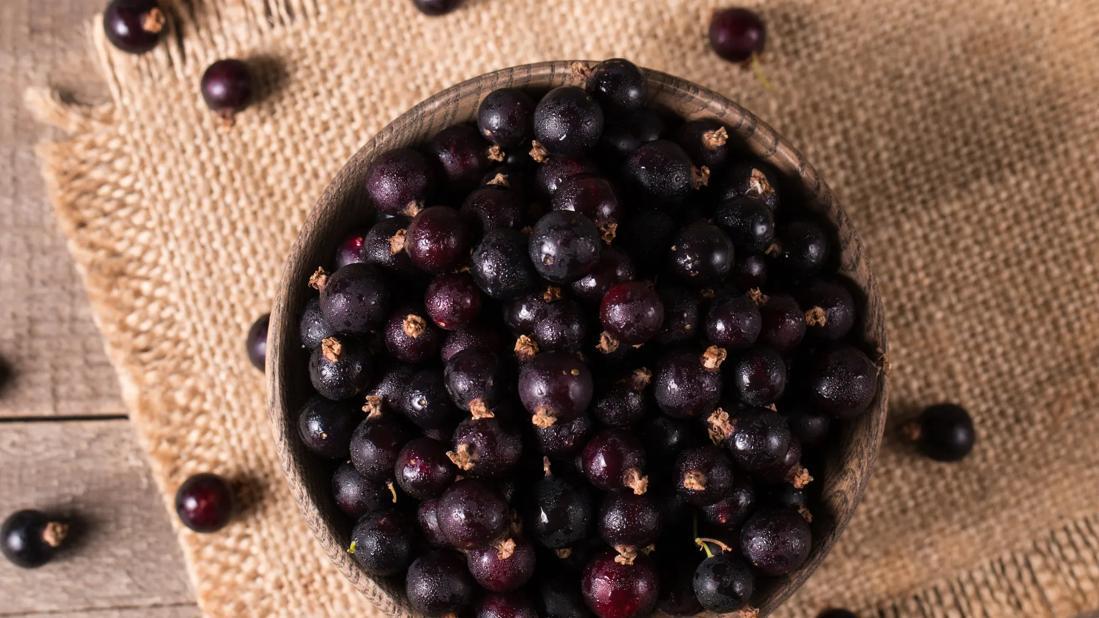4 Reasons Acai Berries Are Good for You
High in antioxidants, this superfood offers many health benefits, including improving digestion and lowering cholesterol

You might not be sure how to pronounce acai (it’s “ah-sah-EE”), but you’ve probably heard about these purple berries. They’re so rich in nutrients that some people call them “purple gold.” Acai benefits include preventing chronic illness, boosting brain health, aiding digestion and lowering cholesterol.
What are acai berries?
Acai berries are small, round, dark purple fruits that grow on acai palm trees in Central America and South America. They’ve been used in traditional medicine. And their popularity has grown as people have realized their superfood status.
“Acai berries are packed with nutrients that provide countless health benefits,” says registered dietitian Julia Zumpano, RD, LD.
Despite their appearance and name, acai berries are actually a stone fruit just like cherries and peaches. Their large pit or seed makes up as much as 80% of the berry. Acai berries look similar to blueberries. But some say they taste like a combination of berry, dark chocolate and red wine.
Why acai is good for you
A high concentration of antioxidants gives acai berries their superfood powers. “Antioxidants protect our cells from free radicals, which can cause cell damage that contributes to various chronic diseases,” explains Zumpano.
A half-cup (or 100 grams) of frozen acai berries is cholesterol-free and has approximately:
- 75 calories
- 5.4 grams of carbohydrates
- 6.3 grams of fat
- 3.8 grams of fiber
- 1.1 gram of protein
- 5 milligrams of sodium
- 1.1 gram of sugar
The health benefits of acai berries include:
1. Protects against chronic illnesses
A natural plant pigment called anthocyanins gives acai berries their dark purple color. These flavonoids are part of a group of antioxidants known as polyphenols. These names might sound confusing, but they’re all substances made by plants (phytonutrients) that protect your body from chronic diseases.
A review of studies suggests that phytonutrients may lower your risk of:
- Cancer
- Cardiovascular (heart) disease
- Diabetes
- Neurodegenerative disorders, like Alzheimer’s disease
- Obesity
2. Lowers cholesterol
Anthocyanins and other antioxidants in acai berries offer heart-protective benefits.
Acai also contains phytosterols, which are plant compounds that block the absorption of cholesterol and aid in the body’s reduction of how much cholesterol enters the bloodstream. Keeping cholesterol levels in a healthy range lowers your risk of:
- Coronary artery disease
- Heart disease
- Heart attack
- Stroke
3. Bolsters brain health
Acai is a good food for better memory and brain health. Antioxidants in acai help protect brain cells from oxidative stress that can lead to memory decline.
As we age, autophagy — the process of the brain getting rid of damaged cells to make room for healthy ones — slows down.
A lab study found that acai supplements slowed the progression of Parkinson’s disease by easing inflammation and reducing the loss of dopamine. Dopamine helps send messages between your brain and the rest of your body. Zumpano notes that more human research is needed.
4. Aids digestion
A half-cup of frozen acai provides up to 14% of your recommended dietary fiber. “Fiber is important for gut health,” says Zumpano.
High-fiber foods also:
- Aid weight management by filling you up and staving off hunger pangs
- Lower risk of high blood pressure, heart disease and diabetes
- Prevent constipation
Are there any acai risks?
Acai berries are good for you. But Zumpano shares a few things to be aware of:
- Additives: Some processed acai products may have extra sugar, which means extra calories. You can check the nutrition facts label for this information.
- Allergies: Acai may worsen allergy symptoms if you have a pollen allergy.
Check with a healthcare provider before taking acai supplements. “Some supplements can interact with medications or may not be safe if you’re pregnant or have a chronic condition,” she warns.
You should also say no to an acai berry cleanse. This potentially dangerous detox trend involves taking acai supplements for several weeks to flush toxins from your body. “There’s no evidence cleanses work, and they may be harmful,” Zumpano emphasizes.
Bottom line?
Acai berries come with plenty of health benefits.
Unfortunately, freshly picked acai berries spoil fast — within a day after harvesting. So, it’s not possible to bring fresh acai berries into the United States before they go bad. Instead, you can buy:
- Acai fruit juice
- Acai powder
- Frozen acai berries
- Frozen acai puree
“You can reap the benefits from all forms of acai berries, just be sure there are no added sugars, sweeteners or fillers,” concludes Zumpano.